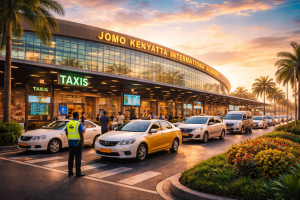
What you need to know:
- The policy, set to take effect in early 2025, will make Ghana the fifth African country to open its borders to all holders of African passports thus ensuring regional integration.
Ghana is set to become the fifth African country to allow visa-free travel for all Africans, joining Rwanda, Seychelles, The Gambia, and Benin. This new policy, approved by President Nana Addo Dankwa Akufo-Addo, is expected to take effect by early 2025.
This decision is part of Ghana’s broader plan to simplify travel across Africa and strengthen connections between African countries. By introducing visa-free entry for all African nationals, Ghana aims to enhance regional integration and encourage greater collaboration across the continent.
President Akufo-Addo first committed to this policy during his keynote address at the Africa Prosperity Dialogues (APD) in January 2024. Speaking under the theme, “Developing Prosperity in Africa: Produce, Add Value, and Trade,” he emphasised the need for policies that simplify movement and strengthen ties among African nations. He said:
Many of you had to acquire a visa to come to this event. We made a special arrangement for this conference, reducing the visa acquisition fee by 50%, and we were thus able to receive your visa on arrival. The government of Ghana is committed to ensuring visa-free for all Africans, for all Africans travelling into our country, and the process has begun to get the policy implemented this year.
This new visa-free policy aligns with the goals of the African Continental Free Trade Area (AfCFTA), which has its headquarters in Ghana’s capital, Accra. AfCFTA’s vision is to create a unified African market by promoting the free movement of people, goods, and services across the continent. Albert Muchanga, Ghana’s Commissioner for Economic Development, Trade, Tourism, Industry, and Minerals at AfCFTA, commended this decision, calling it a significant step toward achieving this vision of a single African market.
On December 18, 2024, President Akufo-Addo granted executive approval for the policy, and communicated to key ministries the following day, as reported by Asaase News.
Source: The Citizen.






